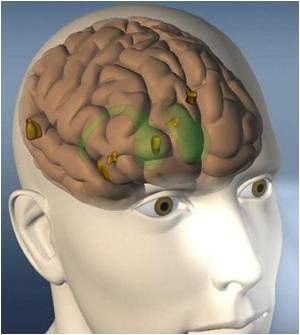According to the first awareness survey at the Canadian Stroke Congress, most people are completely unaware of one of stroke's most common, debilitating but invisible impairments.

The survey team recommends a national education campaign to promote awareness of aphasia and to increase the availability of speech-language therapy, knowledge of supportive communication strategies, as well as long-term programs and services available to people who live with this chronic communication disability.
"Aphasia is poorly understood," says neurologist Dr. Michael Hill, Co-Chair of the Canadian Stroke Congress. "The sudden loss of language after a stroke creates huge challenges for individuals and their families."
As many as 100,000 Canadians are living with chronic aphasia.
"About one third of all people who have strokes experience some degree of aphasia but despite this high prevalence, it just doesn't get much attention," says Rick Berry, project coordinator, who worked with clinical coordinator and speech-language pathologist Ruth Patterson on the survey. "We wanted to gather some Canadian data to compare with surveys that have been done in other countries."
Aphasia occurs when there is stroke damage to language and communication centres in the brain. It does not affect intelligence but can leave people unable to express themselves, find their words and respond when spoken to. Sometimes people with aphasia repeat what has been said to them, get stuck on words or misuse words. As a result of their communication disabilities, they are prone to isolation and depression.
Advertisement
The aphasia survey was conducted in public places in the Toronto area, including beaches, libraries, parks, bus stations and shopping centres. Survey respondents were between ages 18 and 90.
Advertisement
- 32 per cent of people surveyed had heard the word "aphasia";
- Only two per cent correctly identified aphasia as a communication disorder affecting speaking, reading, writing and understanding; and
- In contrast, among those who had not heard of aphasia, 89 per cent had heard of stroke.
"Aphasia can be a frustrating barrier to recovery following a stroke," says Ian Joiner, director of stroke for the Heart and Stroke Foundation. He says that caregivers, patients and even medical professionals need to be aware of and better understand aphasia so that people can be referred to and access much needed supports like speech-language pathologists, assistive devices and support groups.
Source-Eurekalert














